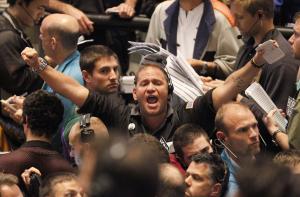April 16 (UPI) — An increase in North American energy work and a moderation of the risk associated with conflict in Syria sent crude oil prices lower early Monday.
Multilateral military engagement in Syria’s civil war risks pulling world superpowers into a fight. Western allies have been relatively calm since launching airstrikes on suspected chemical weapons sites during the weekend, however.
“We do not seek conflict in Syria,” U.S. Defense Department spokeswoman Dana White told reporters during the weekend.
Syria is not an oil exporter, though its allies and adversaries alike are some of the world’s largest producers, including Russia and the United States. Any escalation of the conflict could spill over to involve OPEC members Iran, Iraq and Saudi Arabia.
A comment emailed by commodity pricing group S&P Global Platts said the limited nature of the weekend strikes would likely remove some of the risk premium built up behind the price of oil. The U.S. declaration that strikes would be limited “may tamp down some of the risk to oil prices spiking when markets open Monday,” the report read.
Crude oil prices were down more than 1 percent overnight, but walking back toward even ahead of the opening bell in New York. The price for Brent crude oil was down 0.72 percent as of 9:15 a.m. EDT to $72.06 per barrel. West Texas Intermediate, the U.S. benchmark for the price of oil, was down 0.79 percent to $66.86 per barrel.
With risk easing early in the Monday session, traders may be more focused on fundamental issues. Last week, Baker Hughes reported five more rigs were deployed in the United States than during the previous week, compared with losses internationally and in Canada.
A gauge of exploration and production activity, rig counts serve as a barometer for potential gains in output. The pace of production in the United States is a particular concern to market watchers looking for a return to balance as it could upset the effort by the Organization of Petroleum Exporting Countries to erase a surplus with coordinated easing.

COMMENTS
Please let us know if you're having issues with commenting.